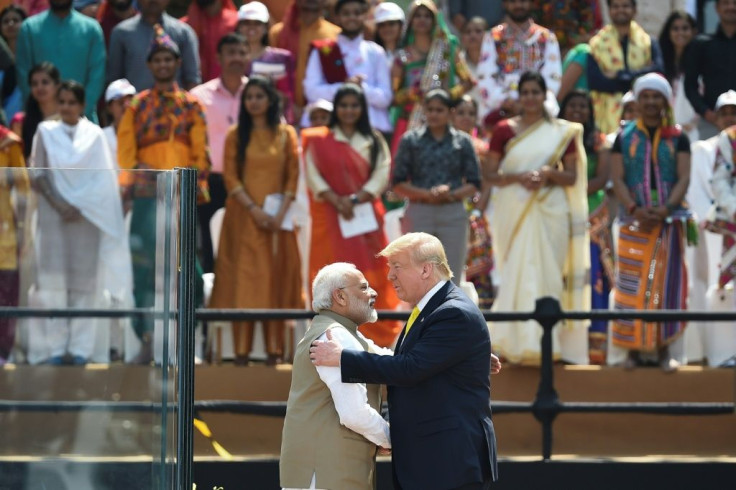US, India Nearing Trade Deal, Says New Delhi’s Commerce Minister

KEY POINTS
- Goyal noted that India and the U.S. are “natural” partners with shared values
- Goyal added that both countries should consider adding favorable trade terms on up to 100 different products
- U.S. would like to settle a trade deal ahead of Donald Trump’s reelection bid
India and the U.S. are close to signing a trade deal after two years of negotiations, the Indian Commerce and Industry Minister Piyush Goyal said on Tuesday.
"I believe we [will] have a… trade deal which has some of the pending matters built up over the last couple of years, which we need to get out of the way quickly. We are almost there," Goyal said. “A couple of [more phone] calls [with U.S. trade representatives] and we will sort it out.”
Goyal noted that India and the U.S. are “natural” partners with shared values.
Goyal added that both countries should consider adding favorable trade terms on up to 100 different products and then eventually gravitate towards a long-term free trade pact.
However, regarding a long-term free trade agreement, the minister said that would require face-to-face meetings – and such an occurrence may not be possible during the ongoing COVID-19 crisis, or before the crucial presidential election in the U.S.
“[After] that… the U.S. and India need to sit down on the negotiating table, I do not know if that can be done before the [U.S.] elections or [after] the elections, but we need to work towards a much more sustainable, a much more robust, a much more enduring partnership in the form of a [free trade agreement],” he said. “[A free trade pact] may take longer to conclude… We can build institutional cooperation between the two nations.”
The Economic Times of India reported that the U.S. would like to settle a trade deal ahead of Donald Trump’s reelection bid and has indicated it may restore the Generalized System of Preferences, or GSP, benefits to India and guarantee market access for each country’s agricultural products.
The Indian government has also asked the U.S. for exemption from high tariffs on various steel and aluminum products, while Washington wants to sell more farm machinery and medical devices to India.
The U.S. was India's top trading partner in 2019-20 with bilateral trade volumes at $88.75 billion, up from $87.96 billion in the prior fiscal year.
Earlier this month, the Indian Ambassador to the U.S., Taranjit Singh Sandhu, said a trade agreement would be a “win-win proposition” for both countries.
India also wants concessions on generic drugs it exports to the U.S. in exchange for more dairy imports from the U.S.
India presently accounts for about 40% of U.S. generic drug imports, including the anti-malarial hydroxychloroquine, which was promoted by Trump in the battle against COVID-19.
However, the Trump Administration has raised concerns over India’s dependence on Chinese raw materials and ingredients for the manufacture of its generic drugs.
"The U.S. is saying, if you want access to our market then become more self-sufficient than being dependent on China," said Mukesh Aghi, president and chief executive at U.S.-India Strategic Partnership Forum.
Another sore point is digital taxes – India decided to impose a new 2% digital tax on foreign transactions, which has raised hackles from companies like Alphabet (GOOGL) (parent of Google) and Amazon (AMZN).
"The latest one on digital tax caught the U.S. side by surprise because it was announced in the [Indian] budget without any discussion or consultation," Aghi said.
© Copyright IBTimes 2025. All rights reserved.





















